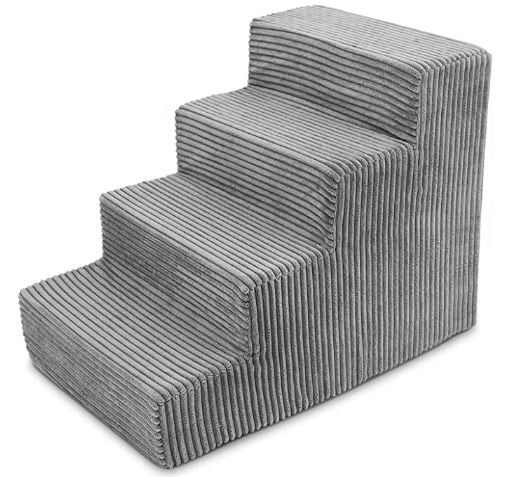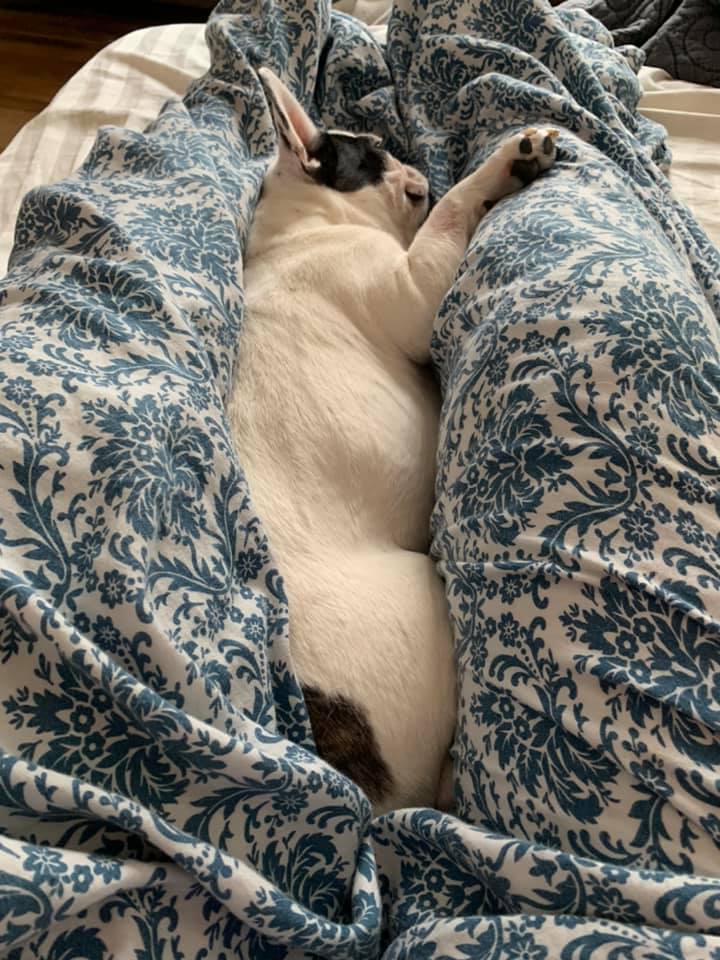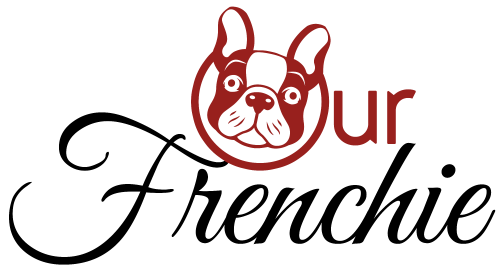About, Facts & Fun
Essential Tips for French Bulldog Owners
Whether you’re a new or experienced Frenchie owner, this article is your go-to guide for mastering the essentials. Packed with expert advice and insights from experienced owners, we’ll cover the MOST important and essential tips for owning a French bulldog. With many years of experience, these are tips you should know. From proper exercise and nutrition to grooming tips and common health issues. Discover the secrets to providing the best care for your French Bulldog, ensuring their happiness, well-being and long life. Don’t wait another minute to equip yourself with the knowledge you need to be a responsible and informed Frenchie owner. Let’s dive in!
Our advice:
– Use stairs for pets Amazon: Best Pet Stairs
– Train Frenchie NOT to jump

To protect your French Bulldog from overheating, it is vital to monitor them closely, especially during hot weather or in high-temperature environments. Keep an eye out for signs of distress, such as excessive panting, drooling, difficulty breathing, lethargy, or collapse. If you notice any of these symptoms, take immediate action to cool your dog down.
Providing a cool and comfortable environment is essential for their well-being. Make sure your French Bulldog has access to shade and fresh water at all times. Keep them indoors or in well-ventilated areas during the hottest parts of the day. Air conditioning or fans can help regulate the temperature and provide relief from the heat. Avoid taking them for walks or engaging in strenuous activities during extreme heat conditions.
Move them to a cool area, preferably with air conditioning, and apply cool (not cold) water to their body, especially the belly, armpits, and paws. You can also use wet towels or cooling mats designed for pets. Encourage them to drink small amounts of water but avoid forcing them to drink too much.
Remember, prevention is the key to avoiding heat-related problems. Educate yourself about the signs of overheating and plan your activities accordingly.
Our choice in hot weather:
– Refillable drinking bottle for dogs – Amazon
– Cooling Vest – Amazon
– Cooling Mat
When it comes to feeding your French Bulldog, it is generally recommended to choose high-quality, balanced dog food that is specifically formulated for their breed and life stage. Look for reputable brands that provide complete and balanced nutrition. Opt for dog foods that have easily digestible ingredients and avoid those that contain artificial additives, preservatives, or fillers.
Some common food allergens that may cause allergies in French Bulldogs include grains (such as wheat, corn, and soy), dairy products, certain meats (like beef or chicken), and some fruits and vegetables. If you notice signs of food allergies, such as itching, redness, skin irritations, gastrointestinal upset (like diarrhea or vomiting), or excessive gas, it may be helpful to consult with a veterinarian.
To identify potential allergens and help manage food sensitivities, your veterinarian may recommend an elimination diet or suggest allergy testing. This process can help pinpoint specific ingredients that your French Bulldog may be allergic to, allowing you to adjust their diet accordingly.
It’s important to remember that every French Bulldog is unique, and their dietary needs may vary. Regularly monitor your dog’s body condition and weight to ensure they are maintaining a healthy weight. Be mindful of portion sizes and avoid overfeeding, as French Bulldogs are prone to obesity and related health issues.
Our article: Best Food For French Bulldogs With Allergies
Additionally, French Bulldogs can be accident-prone due to their playful nature and sometimes clumsy behavior. They may injure themselves during rough play or while exploring their surroundings. Insurance coverage can help cover unexpected veterinary costs resulting from accidents, including emergency visits, diagnostic tests, and treatment.
Furthermore, French Bulldogs may require routine veterinary care, including vaccinations, annual check-ups, and preventive treatments for parasites. Insurance can assist in covering these routine expenses, making it easier to keep up with their healthcare needs and ensuring they receive timely preventive care.
Insurance for French Bulldogs also provides peace of mind. Knowing that you have financial protection in case of unexpected illnesses, accidents, or emergencies allows you to focus on providing the best possible care for your furry friend without the added stress of worrying about the associated costs.
When considering insurance for your French Bulldog, it’s important to carefully review different policies and providers. Look for coverage that includes hereditary and congenital conditions specific to French Bulldogs, as well as coverage for accidents, illnesses, and preventive care. Pay attention to policy limits, deductibles, and any exclusions or waiting periods.
Based on our experience, tick collars have proven to be an effective method of protection. Tick collars are specially designed to repel ticks and other parasites, reducing the risk of bites. They typically contain active ingredients that release slowly over time, providing long-lasting protection. By using a tick collar on your French Bulldog during the summer months, you can significantly minimize the likelihood of tick-related issues and potential health problems.
Our choice (lasting 8 months): Amazon
Clothing for French Bulldogs serves a dual purpose: practicality and style. By dressing them in appropriate doggy attire, you can protect them from the cold and keep them comfortable. Sweaters, coats, and jackets made from warm and breathable materials are excellent choices for winter wear. Not only do these clothing items provide insulation, but they also add a touch of fashion to your furry friend’s wardrobe.
When selecting clothes for your French Bulldog, it’s essential to consider their size and specific needs. Opt for well-fitting garments that allow freedom of movement while ensuring the dog is neither too restricted nor too exposed to the elements. Be mindful of the material used, choosing soft and non-irritating fabrics that won’t cause discomfort or skin issues.
While French Bulldogs may display bursts of energy, particularly during their early ages, as they enter middle and senior ages, they generally become more passive and calm. This shift in temperament is normal and can be attributed to their genetic predisposition and natural aging process. It’s important for owners to recognize and respect this change, adapting their care and environment accordingly.
One key aspect to consider is that French Bulldogs enjoy their downtime. They have a propensity for sleeping and lounging, often seeking out comfortable spots in the house to relax. Providing them with cozy beds or designated resting areas can encourage a sense of security and relaxation. Creating a serene and peaceful environment where they can unwind and recharge is essential for their overall well-being.

You must be ready to spend time with your Frenchie.
Aggression in French Bulldogs can stem from various factors, including genetics, improper training, fear, or protective instincts. It’s crucial to address any signs of aggression early on and seek professional guidance from a qualified dog trainer or behaviorist. With proper training and socialization, many aggressive tendencies can be effectively managed or minimized.
Additionally, French Bulldogs may exhibit unique playing habits that can be misunderstood by dogs of other breeds. French Bulldogs often engage in what some may perceive as “strange” or unconventional play behaviors. They may display zoomies (sudden bursts of energy, running in circles) or engage in brachycephalic play (playful snorting, sneezing, and snorting sounds). While these behaviors are typically harmless and a part of their individual play style, they can sometimes confuse or intimidate other dogs who are unfamiliar with these tendencies.
To ensure harmonious interactions between French Bulldogs and other breeds, it’s important to introduce them to different dogs from an early age and supervise their play sessions. Proper socialization helps French Bulldogs develop appropriate play behaviors and manners, allowing them to engage in enjoyable play with a variety of dogs. Encouraging positive and controlled interactions can promote understanding and acceptance between different breeds, minimizing any potential misunderstandings or conflicts.
If you decide to introduce your French Bulldog to swimming, it’s crucial to prioritize their safety. Start by acclimating them to water gradually, using shallow and calm areas. Always keep a close eye on your Frenchie and consider using a life jacket to provide extra buoyancy and support. It’s important to note that not all French Bulldogs will enjoy swimming, and some may even exhibit fear or discomfort in the water.
To keep your French Bulldog safe around pools or bodies of water, ensure they cannot access these areas unsupervised. Fences, barriers, or constant supervision are essential to prevent accidents. Remember that each dog is unique, and while some French Bulldogs may enjoy swimming with proper precautions, others may prefer alternative forms of exercise and play. Always prioritize your Frenchie’s comfort, safety, and well-being when considering water-based activities.
Our advice is to have a life jacket: From Amazon
To clean your Frenchie’s folds, use a soft, damp cloth or baby wipe. Gently and carefully wipe between the folds, ensuring you remove any debris or trapped dirt. Be cautious not to rub or irritate the delicate skin. For stubborn residue, a canine-specific cleaning solution recommended by your vet can be used. Apply it to a clean cloth or cotton ball and gently cleanse the folds, avoiding contact with sensitive areas.
After cleaning, make sure the folds are thoroughly dry. Excess moisture can lead to skin irritations and infections. Pat them dry with a towel or use a dry cloth for absorption.
Incorporate regular fold cleaning into your Frenchie’s grooming routine, aiming for at least once or twice a week, adjusting as needed. Pay attention to any redness, swelling, discharge, or unpleasant odor, as these can indicate potential issues and should be promptly addressed by a veterinarian.
Additionally, French Bulldogs are known for their strong will and determination. Once they set their minds on something, it can be difficult to change their course of action. This stubbornness can manifest in various situations, from refusing to walk in a particular direction to resisting commands during training sessions.
However, it’s important to approach their stubbornness with patience and understanding. With consistent and positive reinforcement training methods, coupled with plenty of love and attention, French Bulldogs can learn to channel their stubbornness in more constructive ways, making them loyal and affectionate companions.
In conclusion, French Bulldogs are unique and beloved pets with their own set of care requirements. From using tick collars in summer to providing them with appropriate clothing in winter, we have explored key aspects of their well-being. Tick collars offer invaluable protection against tick-borne diseases, while clothing ensures their comfort and warmth. French Bulldogs’ calm nature and love for human companionship make them wonderful family pets, but it’s important to be aware of the potential for aggression and the need for proper socialization. Understanding their play style and ensuring harmonious interactions with other dogs is crucial. In the end of the day, proper diet.
Additionally, we discussed the cautious approach needed when introducing French Bulldogs to swimming due to their brachycephalic anatomy. Lastly, we emphasized the importance of cleaning and caring for their adorable folds to prevent skin issues and maintain their overall health. By being attentive to these aspects and providing them with the care they deserve, French Bulldogs can lead happy, healthy, and fulfilling lives as cherished members of our families.


